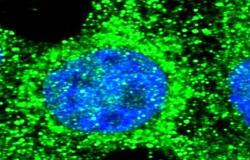
VERONA. The first case in Europe of Oropouche fever (an arbovirus like dengue, Zika, chikungunya) has been diagnosed in a patient with a recent history of travel to the tropical Caribbean region.
Ascertained by the department of infectious, tropical and microbiology diseases of the Sacro Cuore Don Calabria hospital in Negrar, the case has already been reported to the health authorities and the local health authority of the Veneto Region. The virus was isolated in the Department’s BSL3 laboratory.
“Oropouche fever is caused by the virus of the same name (OROV), normally widespread in the Amazon region, transmitted to humans by insect bites, in particular midges and mosquitoes – explains Federico Giovanni Gobbi, director of the Department which made the diagnosis possible. Oropouche fever is one of the most widespread arboviruses in South America, with over 500,000 cases diagnosed from 1955 to today, a number that is probably underestimated given the limited diagnostic resources available in the area of diffusion”.
“The symptoms usually appear 3-8 days after the bite of the vector insect, e they largely overlap with those of other tropical viral fevers such as dengue, Zika or chikungunya: high fever (over 39°C) accompanied by headache, retrorbital pain, general malaise, myalgia, arthralgia, nausea, vomiting and photophobia – continues Concetta Castilletti, head of the Virology and Emerging Pathogens Unit of the Irccs. Sporadic cases of central nervous system involvement, such as meningitis and encephalitis, have also been recorded. In approximately 60% of cases, after the first acute phase, the symptoms recur, in a less severe form: usually within two to ten days, but also after a month from the first appearance”.
“Oropouche, like other arboviruses – the experts point out – constitute one of the public health emergencies with which we must get used to living. Having managed to isolate the Opov virus provides us with an additional weapon to refine diagnostics and research” .





